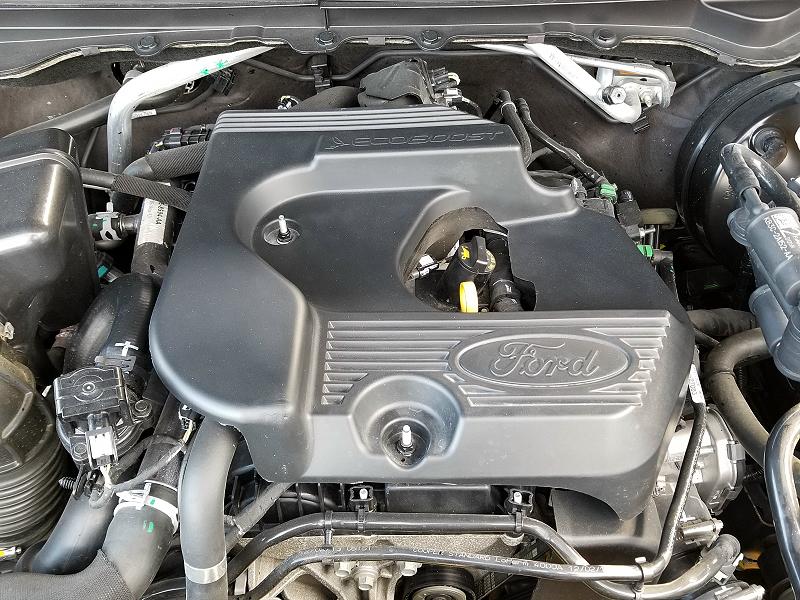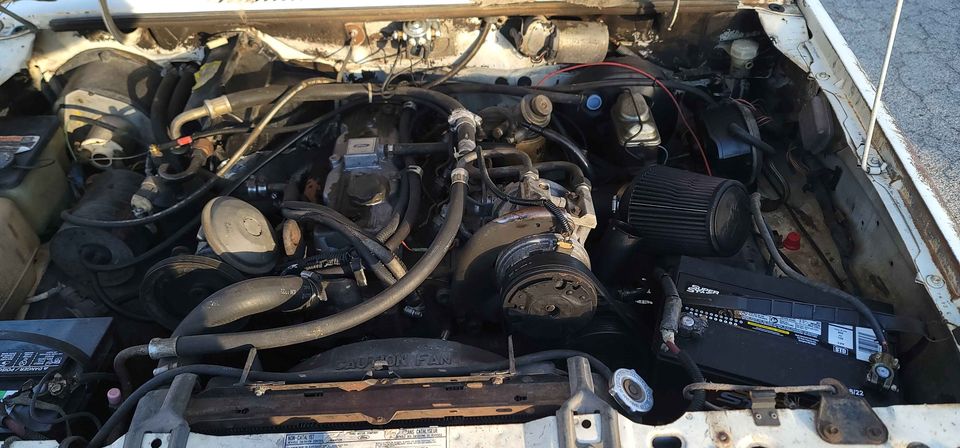Is the 2.2 Ford Ranger Engine the Right Fit for Your Driving and Work Needs?
Is the 2.2 Ford Ranger Engine the Right Fit for Your Driving and Work Needs?
Blog Article
Exactly How to Select the Right Vehicle Engine for Maximum Performance and Performance
Selecting the ideal auto engine to achieve an ideal equilibrium of performance and effectiveness requires a nuanced understanding of numerous engine kinds and their particular attributes (2.2 ford ranger engine). Aspects such as engine variation, the number of cylinders, and gas kind play a crucial role in determining both power result and gas economy.
Comprehending Engine Kind
When choosing a car, one of the most crucial elements to think about is the engine type, which functions as the heart of the automobile. The engine type considerably affects the automobile's overall performance, longevity, and viability for your driving demands. There are mainly three engine types to consider: internal burning engines (ICE), hybrid engines, and electrical engines.
Internal burning engines remain the most common, operating on gasoline or diesel. They are known for their power and acceleration, making them ideal for performance-oriented vehicles. They might fall short in gas performance and ecological effect.
Hybrid engines combine an interior combustion engine with an electric motor, offering an equilibrium in between efficiency and fuel economic climate. They are progressively preferred for motorists looking for decreased emissions while still providing appropriate power.
Electric engines, powered entirely by batteries, are gaining traction due to their environmental advantages and reduced running costs. They supply instantaneous torque and a silent driving experience, making them excellent for city travelling.

Efficiency vs. Effectiveness
Picking the best engine kind includes weighing the compromises in between efficiency and performance. Efficiency generally refers to just how well an engine can supply power and acceleration, which is frequently connected with larger displacement engines or those with turbocharging capacities. These engines normally offer electrifying driving experiences and quick reaction times, making them preferred among lovers.
On the various other hand, efficiency concentrates on gas economic situation and lower discharges. Smaller engines, specifically those geared up with advanced technologies such as direct fuel shot and variable shutoff timing, often tend to provide better miles per gallon and decreased carbon footprints. While these engines might compromise some power compared to their bigger counterparts, they usually master everyday driving situations where high efficiency is not constantly required.
Eventually, the selection between performance and effectiveness rest on individual concerns. A chauffeur that values spirited driving may prioritize a high-performance engine, while someone seeking cost-efficient travelling might lean toward an efficient choice. Recognizing these compromises is vital for making an informed choice that lines up with your driving demands and way of living, making certain that the selected engine kind enhances your assumptions for both efficiency and effectiveness.
Trick Specs to Think About
Understanding crucial requirements is essential for making an informed decision concerning the appropriate auto engine. When picking an engine, several important elements require factor to consider to ensure optimal efficiency and effectiveness.
First of all, engine displacement, gauged in litres or cubic centimeters, is a critical spec. It suggests the total volume of the engine's cyndrical tubes and normally correlates with power outcome; larger displacements usually produce more power. Next, the variety of cylinders plays a substantial function in efficiency features. Engines with more cyndrical tubes can provide smoother procedure and greater power, while smaller setups can improve fuel performance.
Furthermore, the engine's configuration, whether inline, V-type, or rotating, influences the general layout and efficiency characteristics of the car - 2.2 ford ranger engine. Turbocharging and supercharging technologies must also be reviewed; these boost an engine's power outcome without substantially increasing its size, therefore boosting effectiveness
Gas kind is one more vital factor to consider, as it influences both performance and costs. Last but not least, the engine's compression proportion impacts effectiveness and power distribution; a greater proportion typically brings about better effectiveness, however might require superior gas. By carefully evaluating these requirements, you can pick an engine that lines up with your efficiency and effectiveness objectives.
Examining Driving Demands
Reviewing driving demands is a basic step in identifying the ideal auto engine for your way of living and usage patterns. If your driving mainly consists of short commutes in city environments, a smaller engine with excellent fuel effectiveness might be enough.
Think about the surface you generally browse. Hilly or tough landscapes may demand an engine with greater torque for better performance. Furthermore, mirror on traveler and more freight requirements; larger family members or those who move products may gain from cars with boosted power and capacity.
Diesel engines usually offer superior torque and fuel economic climate for larger vehicles, while gasoline engines might offer a smoother and quieter experience. Variable in environmental considerations, as hybrid or electric engines can provide a much more sustainable choice without giving up efficiency.
Future Trends in Engine Technology
As the automotive sector proceeds to develop, developments in engine technology are leading the way for much more effective and sustainable driving experiences. One significant trend is the change toward electrification, with crossbreed and completely electric powertrains acquiring prominence. Car manufacturers are investing greatly in battery modern technology to boost energy thickness and decrease billing times, inevitably boosting the functionality of electrical cars (EVs)
Another arising pattern is the development of hydrogen gas cell engines. 2.2 ford ranger engine. These systems offer the capacity for zero-emission driving while offering refueling times equivalent to conventional fuel engines. Furthermore, improvements in burning innovation, such as variable compression ratios and enhanced turbocharging, are enhancing conventional inner combustion engines for much better performance and efficiency
Digital integration is additionally a vital aspect of future engine innovation. The application of expert system and artificial intelligence permits real-time information evaluation, allowing smarter engine administration systems that adjust to driving problems and enhance fuel performance.

Conclusion
In conclusion, picking the appropriate cars and truck engine demands a detailed assessment of numerous variables, including engine type, efficiency requirements, and effectiveness objectives. By recognizing the distinctions between various engine types and thinking about vital specifications, people can straighten their choices with particular driving demands. As advancements in engine modern technology remain to emerge, staying educated concerning future trends will certainly additionally boost decision-making, ultimately causing a vehicle that balances performance and fuel effectiveness successfully.
Selecting the ideal automobile engine to attain an optimum balance of performance and effectiveness requires a nuanced understanding of various engine types and their specific characteristics. There are mostly 3 engine types to consider: internal combustion engines (ICE), hybrid engines, and electrical engines.
Efficiency normally refers to just how well an engine can supply power and acceleration, which is frequently associated with larger variation engines or this post those with turbocharging capabilities. Diesel engines often offer superior torque and gas economy for larger Visit Website vehicles, while gas engines may supply a smoother and quieter ride.In verdict, choosing the suitable cars and truck engine necessitates a detailed examination of different elements, consisting of engine type, performance needs, and effectiveness objectives.
Report this page